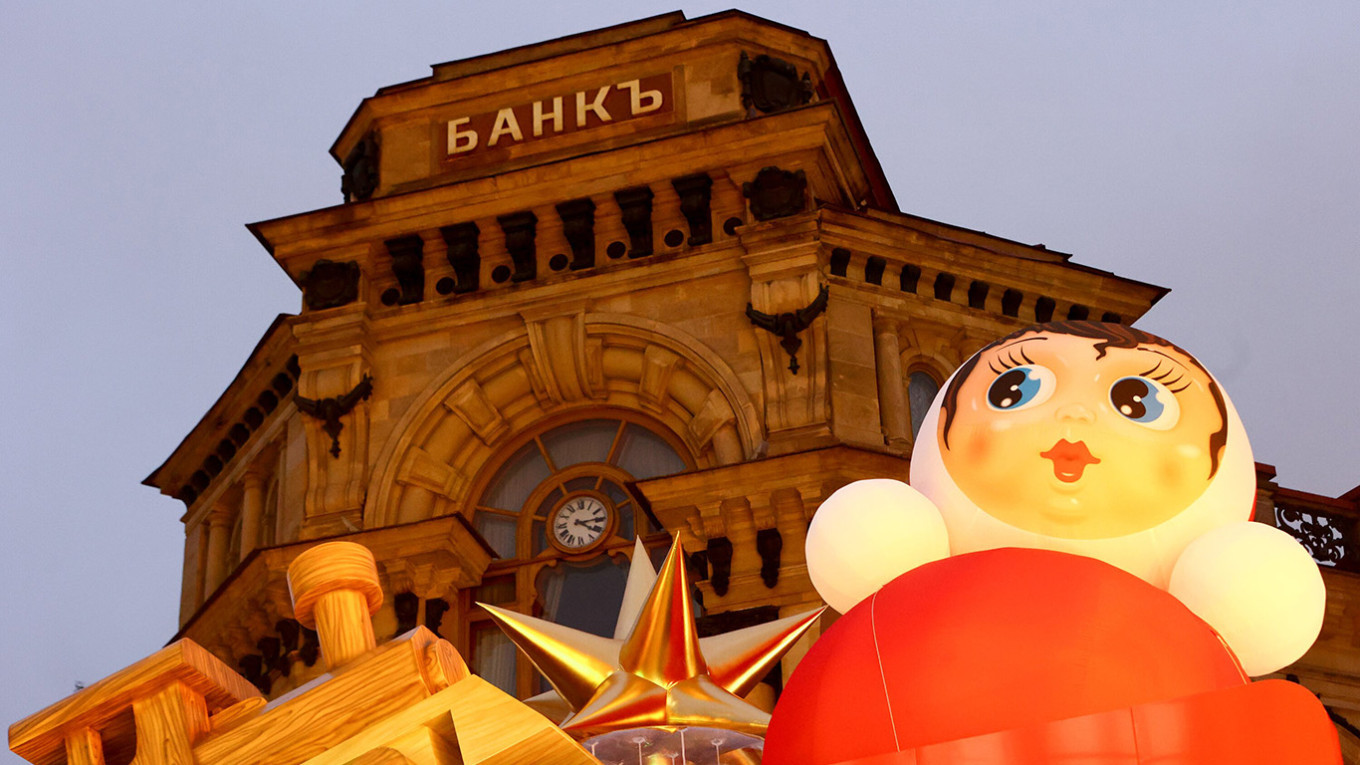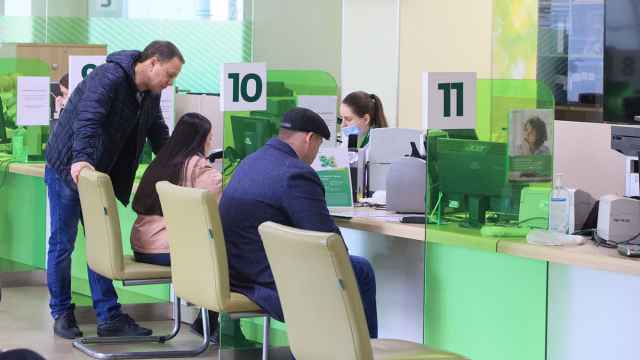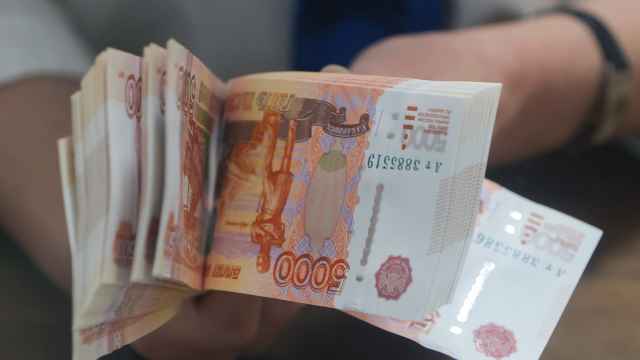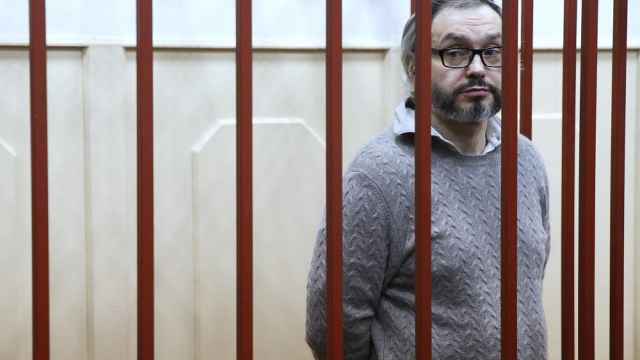The probability of a systemic banking crisis in Russia is on the rise, according to a new report from a state-affiliated economic think tank.
Experts at the Center for Macroeconomic Analysis and Short-Term Forecasting (CMASF) warn that while a full-blown crisis has not yet materialized, several warning signs point to a high likelihood of one happening.
In its latest analysis, CMASF describes the current situation as a "resonance" of negative economic signals: rising bad debts, early indications of depositor flight and mounting pressure on both businesses and consumers from high interest rates.
The group is now closely tracking not just indicators of crisis onset, but also signs that any future crisis could be prolonged.
A systemic banking crisis, as defined by CMASF, would involve at least one of three conditions: non-performing loans exceeding 10% of total banking assets, a significant withdrawal of funds by depositors, or large-scale bank recapitalizations exceeding 2% of the country’s GDP.
None of those conditions have been met so far, but the underlying risks are steadily growing, the report says.
The Russian Central Bank, which has maintained a tight monetary policy to combat inflation, acknowledges that high interest rates are putting strain on the financial system.
Corporate borrowers are increasingly struggling to service their debt, while households are accumulating bad loans at a growing pace.
Loan issuance is slowing, and signs of credit stress are beginning to emerge at the country’s two largest lenders, Sberbank and VTB.
In a recent financial stability report, the Central Bank identified corporate credit risk and consumer over-indebtedness as two of the six primary vulnerabilities in the financial system. It noted a marked increase in the cost of credit risk and a deterioration in repayment rates, particularly among retail borrowers.
To contain the fallout, the Central Bank has called on banks to offer greater flexibility on loan restructurings and has relaxed reserve requirements for restructured loans beginning in July.
In March and early April, Russian banks restructured 2.3 trillion rubles (about $25 billion) worth of loans, though the pace has since slowed significantly.
Although the Central Bank maintains that the situation remains manageable, the numbers tell a more complicated story. As of the end of April, problem loans totaled 5.2 trillion rubles ($66.2 billion) — 3.2 trillion in corporate debt and 2 trillion in retail — representing less than 5% of total banking assets.
But ratings agency ACRA estimates that problematic loans could surge to the equivalent of 20% of the system’s capital by year’s end, or 3.7 trillion rubles.
Some of Russia’s largest corporations are already feeling the pressure. The Central Bank reports that 13 of the country’s 78 largest firms now earn less in profits than they owe in interest — an unsustainable dynamic if high rates persist.
Still, the regulator argues that most industries, with the exception of coal, are adapting to the new monetary environment. It emphasizes that banks are well-capitalized, with reserve buffers covering more than 70% of risky loans. Retail lending alone had a buffer of 1.3 trillion rubles ($16.5 billion) as of March.
Russia has weathered banking crises before, most recently in 2014-2015, when a crash in oil prices and Western sanctions over the annexation of Crimea sparked a deep financial shock.
That episode was successfully predicted by CMASF’s early-warning indicators, similar to those now raising concern.
A Message from The Moscow Times:
Dear readers,
We are facing unprecedented challenges. Russia's Prosecutor General's Office has designated The Moscow Times as an "undesirable" organization, criminalizing our work and putting our staff at risk of prosecution. This follows our earlier unjust labeling as a "foreign agent."
These actions are direct attempts to silence independent journalism in Russia. The authorities claim our work "discredits the decisions of the Russian leadership." We see things differently: we strive to provide accurate, unbiased reporting on Russia.
We, the journalists of The Moscow Times, refuse to be silenced. But to continue our work, we need your help.
Your support, no matter how small, makes a world of difference. If you can, please support us monthly starting from just $2. It's quick to set up, and every contribution makes a significant impact.
By supporting The Moscow Times, you're defending open, independent journalism in the face of repression. Thank you for standing with us.
Remind me later.






